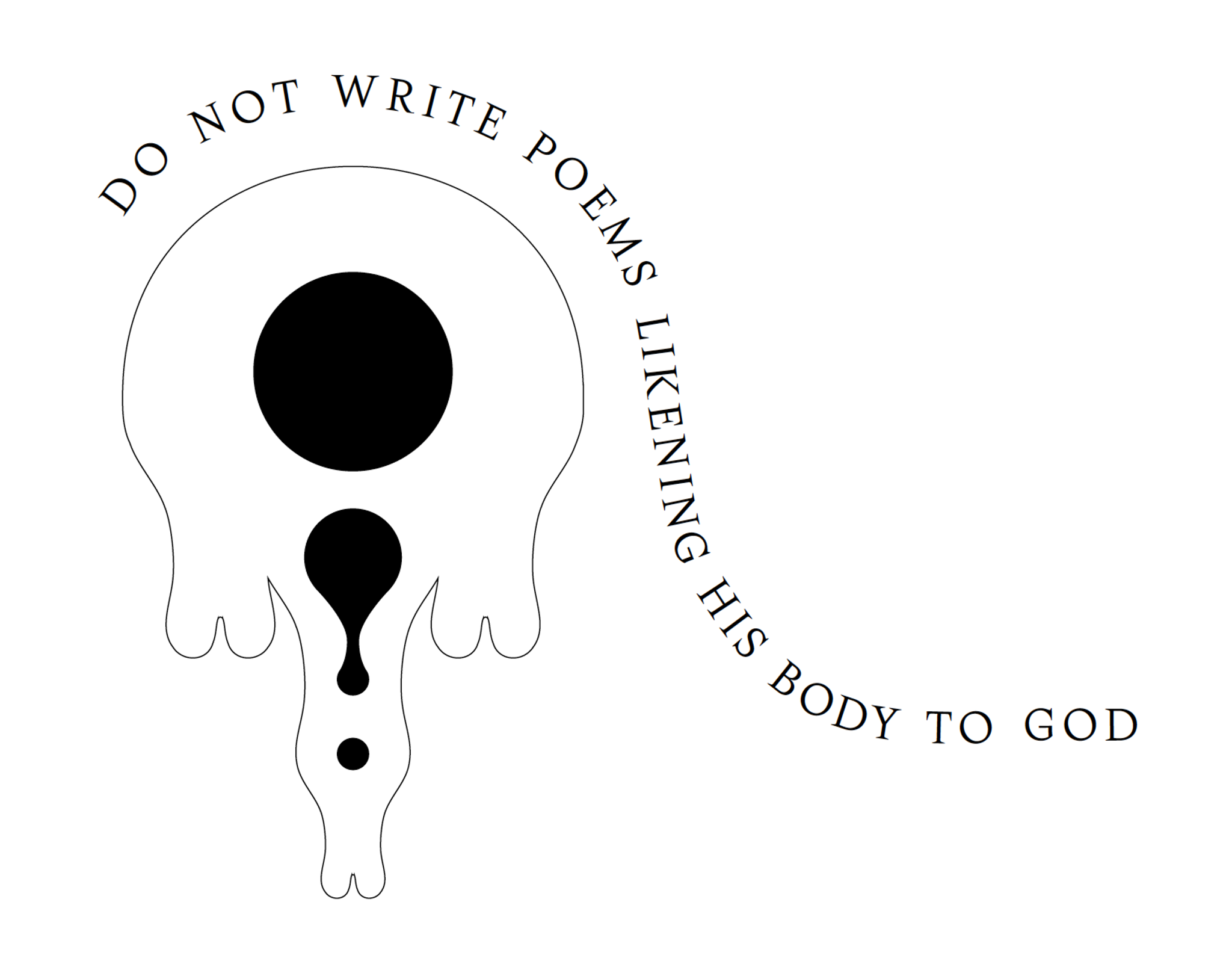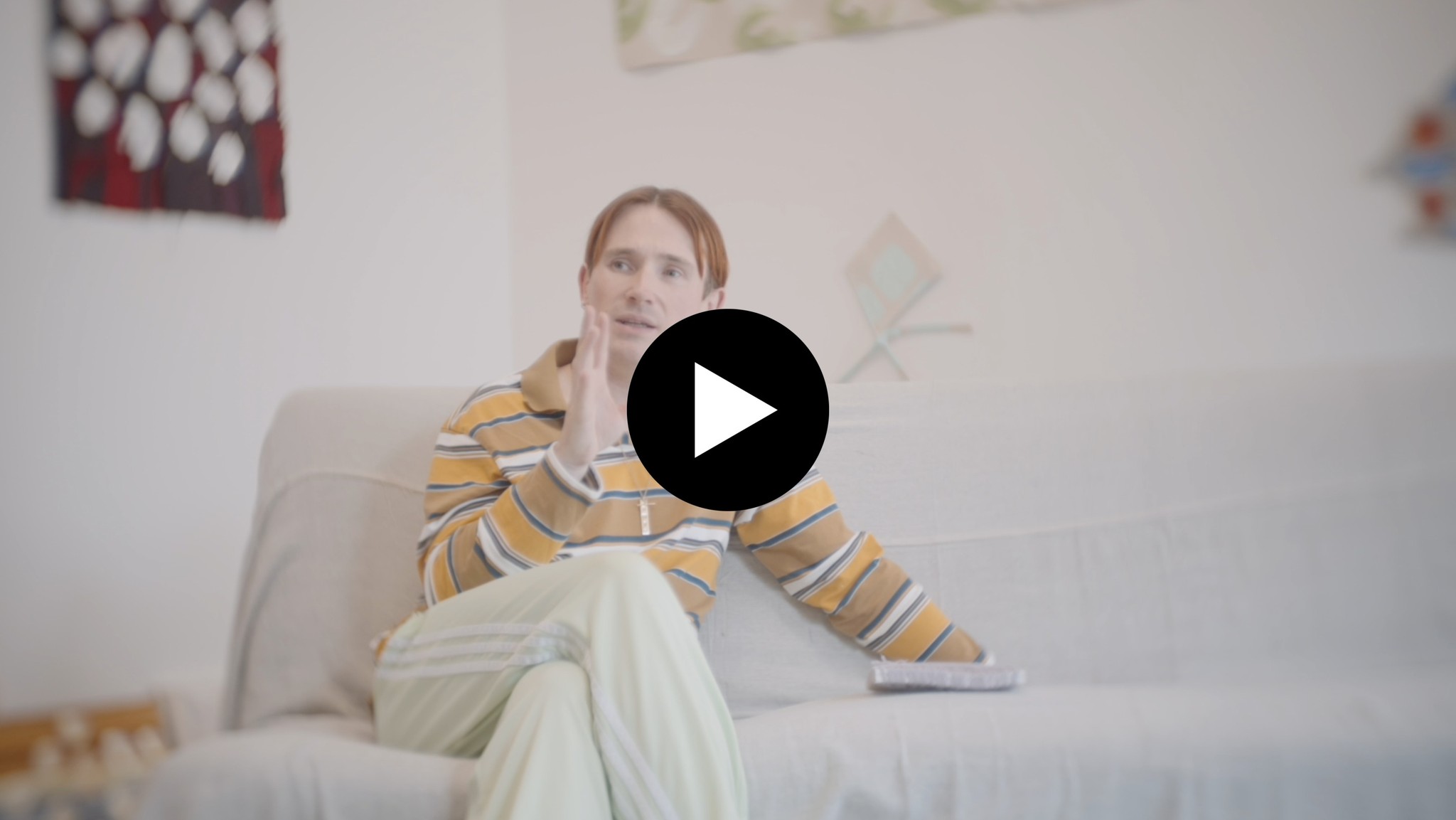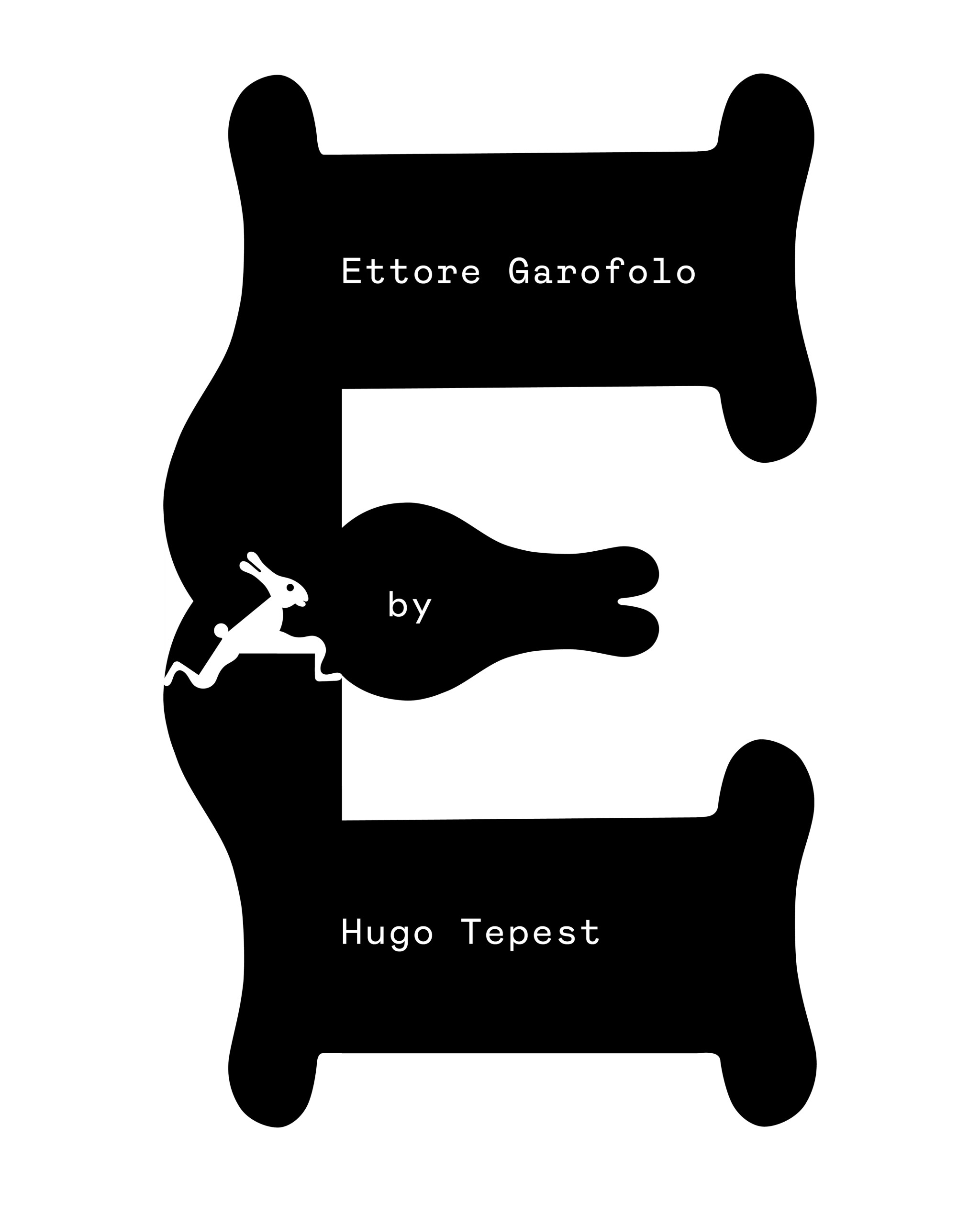Essay
Wild Spring
by Geoffrey Mak
“Why don’t you come to Berlin with me?” I asked, and I still remember the look on your face. We were walking in Chinatown, past the park on Bayard Street where the Chinese men practice tai-chi on Saturday mornings. We had barely started seeing each other, it hadn’t been very long. But I wanted to gift you some easy joy—something grand, yet sweet as a Jolly Rancher—because you seemed so surprised by it all.
A week or two later, you said at dinner, incredulous, “Do you remember what you said?” Of course I did. My mind had never wavered.
In Berlin, we stayed in an apartment I rented in Friedrichshain, by the canal. Summer surprised us, coming over the surface of the Spree with a shower of rain, we stopped in the colonnade, and went on in sunlight, into the Hofgarten, and drank coffee, and talked for an hour. I wasn’t sure if the woven Margiela vest I picked out for you at Voo Store was a mistake—it was more than either of us could really afford—but its powder blue softened you. It brought out your eyes. You bought it, because there was a kind of impatient scarcity to those days: new love. Even when the skies were cloudy, the canal by our apartment still shone silver, feeding on its own lustre.
We took the S-Bahn everywhere through the city I loved, where I used to live. We rode past the street markets where food carts sold tomatoes strung up like garlands and Turkish vendors hawked keychains to tourists. This was my old city, no longer home, where bananas were expensive but salmon was cheap, where grocery stores hid themselves inside shopping malls. From the train, Berghain looks like a Neoclassical toybox the colour of a wet sand dollar. Further out, you can see the Charité University Hospital with its red brick buildings. You must have been asleep by then. I thought I might wake you, but we already passed it.
Charité was where I’d been committed as an inpatient three years earlier after suffering a psychotic break. Adorned with large turrets, surrounded by a moat, my ward made me feel like I was trapped in a castle with a broken brain. My belongings were in some storage facility in East Berlin. I was homeless. No one bothered to visit me. Some days, I only got out of bed to pick at a meal in the cafeteria: one rock-hard biscuit, a sachet of grape jam and a single German wiener,served on a stained plastic tray. Occasionally, I snuck off to the shower to masturbate or snort ketamine, which I still kept on me.
“Have you ever actually tried to get sober?” said the hospital psychologist, addressing me in an English as crisp as the ward’s white sheets.
“When can I leave here?” I stared at her.
She studied my expression. “We’ll see.”
In the afternoons, I watched a patch of sunlight move across the wall. You still unknown to me then. In my abjection, I thought I’d snort drugs until the money ran out and then I’d down a hundred millilitres of GBL in a bottle of Coke and say goodbye to all that. Why I didn’t still mystifies me. It must have been prophecy disguised as a delusion that kept me alive.
Some years later in New York, after Micaela and Daniel’s film screening, I went to their afterparty in a Chinatown loft that housed the offices of a literary magazine.
“That’s really bold,” you said about my T-shirt.
It was a thrifted shirt with big block Russian letters and an image of a KA-50 warplane. I usually only wore it to sleep in, or underneath a hoodie I hadn’t planned on taking off that night.
“I’m going to get cancelled,” I said. The war was then in its second year.
Your hair was blonde-brown, oiled, and split down the middle, and your hooked nose seemed to narrow to a Q-tip when I looked at you straight on. You came up to me not because you knew I was intelligent, or because we had friends in common—you wanted to fuck me. A month or so later, when you came inside my ass, it was remarkable, not the first time it happened but the second. You were the first person I slept with twice.
Those early days overwhelmed me. The intimacy, the intensity, my disrupted solitude—I thought the pleasure was too great, all this strangeness: you. “It’s like that in the beginning,” Harry said when I told him about you over coffee near Irving Park. “It dies down after a while. Enjoy it while it lasts.”
Those early days had an air of budding celebration. When I giggled after we kissed, you asked why. You thought I was laughing at you, and I didn’t know how to say that I felt like a thirty-four-year-old teenager. I felt wasteful for not enjoying this time more—it was happening so quickly, I was stressed. This wasn’t a new way of thinking for me: I’d long believed that life is a slow dulling of loveliness, that the memory of intense beginnings pushes one through the blurriness of the long, indefinite middle, and that love follows the logic of life, fading into the universal insult that is old age.
I’d worried that I was just too old for love. Or that my suffering would disqualify me from enjoying happiness that arrived late and unannounced. I was bitter, cautious. By the time I was thirty-four, I’d known insanity, homelessness, and betrayal, but I had not yet known love. Can you imagine what that’s like? It is not right for one to know these things before one knows love. I was incredulous that this was it, but my incredulity saved me. Grace will come, but it will come late, said the old prophecy, and I went after it blindfolded.
What followed was only a succession of surprises, one after another.
Like the time I was waiting in the upstairs galleries at The Met, where we were going to see ‘Manet/Degas,’ and out the doorway, you appeared, in your new ribbed sweater and baggy jeans, and your aviator glasses. I saw you before you saw me, and my heart leapt—like hearing the pentatonic scale on the first day of Spring.
I learned that day, sitting among the Rodins, that what I had been told about the progress of love was false. Love builds.
I feel as if I’ve loved you now more than I ever have. It wasn’t because of anything that happened, but a slow accumulation of moments that I file away in a pearled, lacquered box in my mind. Like when I asked if we could change our anniversary date from March 31 to April 1 (because not every month has 31 days, and I lose track) and a flicker of irritation flashed across your face. You said, “Well, I can remember the date,” because it meant something to you. I realised I seemed dismissive, and I felt ashamed. Or when I came back from the bathroom at Brass Monkey, and I saw that you, uncommonly sentimental, had chosen the same table where we’d sat on our first day. I was too overwhelmed to comment on it. I pretended I didn’t notice. But when I recounted this to my analyst, I started crying.
I was crying everywhere I went. I cried on the subway, I cried listening to Joni Mitchell while chopping vegetables. I cried in the dentist’s chair. “Just raise your left arm if you want me to stop,” she said, thinking she was doing something wrong. I began to think some aura was coming over me—that, by habit, I couldn’t separate joy from mourning, in advance, the loss of it. As if, by muscle memory, I could not dissociate happiness with its one day being taken away from me.
I remember coming back from a rave, the light glowing with a predawn blue. No other word than “princely” can describe this: When you heard me open the bedroom door, you wordlessly lifted your left elbow, your pale back turned to me, because you knew—expected—that I would come and slide my arm around your side. What can I do to preserve that entitlement? One night in bed, you turned onto your side, and I woke, just a little further down the bed, and I saw you reach behind for my arm. Your palm tapped the bed, trying to find me. I’m right here, I wanted to say, but I was stricken because my mind immediately flashed forward to a time when I might not be. How could I protect your expectation that I would remain?
Although I know what it is to grieve in advance, and this isn’t it. I cry because your love is like watching time reversing itself. Imagine my surprise at getting the chance to relive a youth I thought had been aborted by suffering. Before I met you, I knew entire landscapes of loneliness. I desired, but knew my own desire only as something that, if expressed, would meet scorn, rejection, revulsion, or pity, and so I learned to keep it secret within a walled garden of sand and dandelions. Like someone born in the desert and knowing only the desert, I forced myself to be grateful for the dunes. I gave thanks for the high wind and the sandstorms and the conical red hills and the haycocks.
And then one day, not knowing where I was going, I stepped outside my walled garden and saw, for the first time, a wild Spring. I discovered the rose, which bursts open its gaudy face unafraid of the predatory squirrels and aphids that threaten to ridicule its trust in the sun. I discovered the foxglove whose blossoms dangle like fifty tiny horns, declaring, at all hours, the presence of majesty. I saw colours I didn’t know existed—ochre, fuschia, saffron, marigold.Moss and lilac and Prussian blue. I marvelled at the peonies because I didn’t know it was possible to fit so many petals into a shape only as large as a human heart.
I didn’t yet know the difference between annuals and perennials. So when the peonies died, I mourned their loss. When they returned the following Spring, I was so surprised I wept, because I didn’t know that’s how perennials work, how love works.










